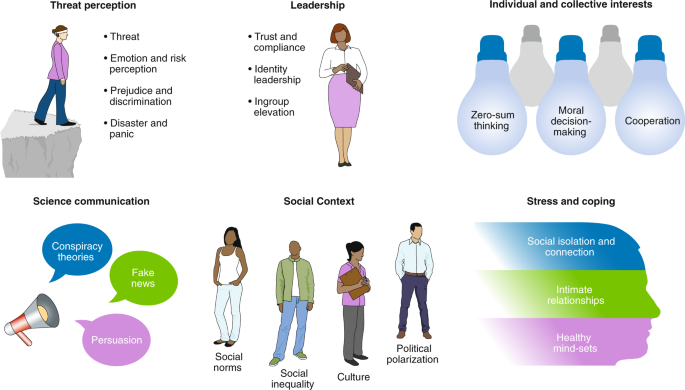
Humans are irrational: Global behavioral science experts ‘nudge’ citizens in the right direction.
The Secure Communities
Forum, a global collaboration of security professionals, has convened a leading panel of
experts to discuss how behavioural science can impact positive social cohesion. This
could be achieved by building on the concept of constructive citizenship and encouraging
rational individual behaviours. The virtual event was attended by 134 people from across
18 countries and the webinar was conducted in response to the ongoing Covid-19
pandemic.
Governments and law enforcement agencies have, for long, used behavioural science to
encourage adherence to public health measures such as social distancing and mask-
wearing. Lindsay Juarez, Director at Irrational Labs, USA, opened the session, offering
the view that we assume humans are rational, which is not the case. She said:
“Behavioural science is about setting people up for success and breaking through the
noise. Information isn’t enough to change behaviour, the decision-making context
matters. “People don’t always act in their own long-term best interests, but we can nudge
them in the right direction. In tackling the spread of misinformation, we’ve found that when
we let people know, for example, that they’re about to share a social media post with
unverified information, it reduces the number of times it is liked and shared.”
In the Indian context, the nudge theory could be a crucial game-changer, especially with
regard to the mass vaccination drive taken forward by the government. At present, several
citizens have seemed to have developed ‘vaccine hesitancy’ in the country, and therefore,
the nudge theory could prove to be beneficial, allowing citizens the time to think, evaluate
and take informed decisions when it comes to safer Covid practices and getting the jab.
Governments worldwide have been making extensive use of “nudge” initiatives during the
pandemic, designed to encourage positive participation in society without significant
interference in the individual decision-making process. Ed Bradon, Director of Home
Affairs, Security, and International Development at the United Kingdom Behavioural
Insights Team offered insights from an intervention programme in New Zealand.
He said: “We looked at how we can tweak the environment, nudging people toward the
right behaviour. We simplified the language so that it’s understandable by those with a
reading age of nine, we made headings bigger and we appealed to their sense of
reciprocity. This reduced non-attendance at court from 16% to 12%, a small but
encouraging improvement.”
Sabrina Ng, Deputy Director of the Behavioural Insights Unit, Singaporean Ministry of
Home Affairs, brings over seven years of experience in behavioural science from her work
in the Ministry. She outlined a case study pertaining to nudging traffic offenders at various
time points of their journey with the Traffic Police: “A clear call-to-action, and listing step-
by-step instructions to submit driver’s particulars online raised online submissions over
paper ones by 10%, reducing man hours in processing time and the need for hard copies.
We also nudged more than 3,600 drivers to pay their fines on time, by highlighting the
impact of the offence and the consequences of inaction, making it easy to pay the fine
and removing complex language. Lastly, we encouraged drivers to sign up for a driver
safety course by having a clear call-to-action, and highlighting the limited opportunity to
cancel four demerit points from their record. It was also helpful to provide a soft deadline
of one month, which nudged drivers to register for the SDC earlier.”
Abdulrahman Al Mansouri, Director of the Executive Office in the Department of
Behavioural Rewards, UAE Ministry of Possibilities, offered an in-depth perspective from
his experiences in the UAE, where 30 key workers in government and private sectors
have been trained in behavioural science and economics so they can incorporate those
principles into their work.
He said: “The Ministry of Possibility’s National Behavioural Rewards Programme is based
on four pillars: empowering individuals; supporting families; mobilising communities; and
uplifting the nation. It has a variety of accelerators designed to encourage good nutrition,
encouraging volunteering, and legislation. Citizens who engage positively by ordering
healthy food or volunteering can earn Danat points on our recently launched mobile
application, Fazaa Behaviours, which can be redeemed with more than 120 partner
organizations.”
Closing the session, the speakers acknowledged that while behavioural science is not a
silver bullet, it can play a crucial role in promoting a healthy, proactive, and engaged
society – and especially in encouraging public health measures during the pandemic.
The 134 attendees joined the event from Antigua and Barbuda, Aruba, Canada, Egypt,
France, India, Iraq, Ireland, Israel, Jordan, Kenya, Morocco, Saudi Arabia, Singapore,
The United Arab Emirates, The United Kingdom, The United States and Yemen.
